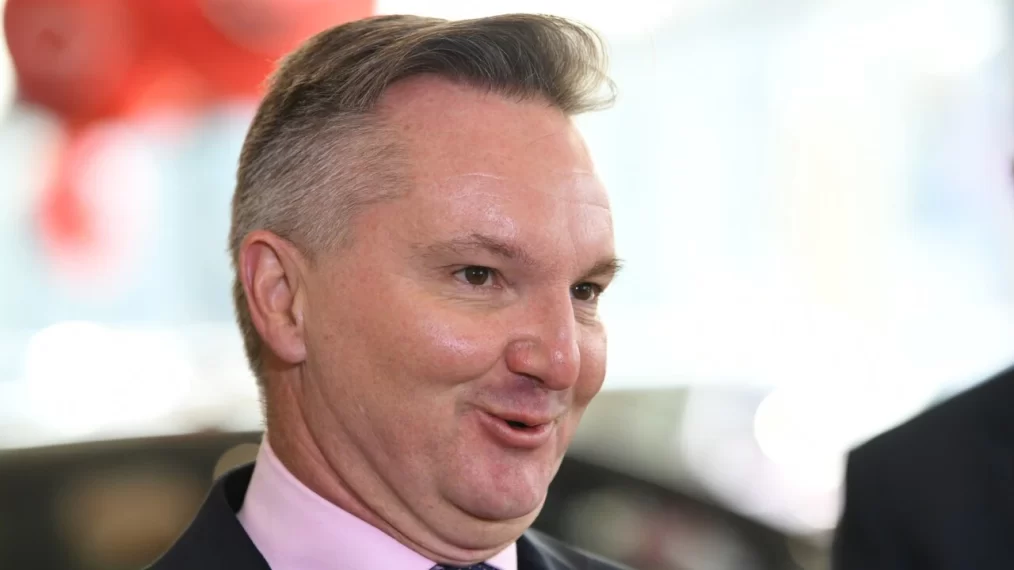
Chris Bowen Exposed: Worst Minister Ever in Australia’s History?
Chris Bowen MP, the current Minister for Climate Change and Energy, is under fire for alleged manipulation of public servants and dissemination of misinformation to mislead the Australian public. Critics argue that his actions could earn him the dubious title of “Australia’s Worst Minister.”
Allegations of Manipulating Public Servants
Reports have emerged suggesting that Bowen has pressured public servants to alter or manipulate figures related to the costs and feasibility of nuclear power in Australia. Nuclear energy, a topic of increasing interest in the context of Australia’s transition to clean energy, has been painted as prohibitively expensive by Bowen’s office. However, some insiders claim that these figures have been skewed intentionally to support a political narrative rather than reflecting genuine data.
The allegations include:
- Falsified Cost Comparisons: Critics allege that Bowen’s department has selectively inflated the costs of nuclear power projects while downplaying the expenses associated with renewable energy alternatives, such as wind and solar.
- Lack of Transparency: Documents and data underpinning these claims have been difficult to access, raising concerns about accountability and transparency.
- Misinformation Campaign: By spreading these manipulated figures, Bowen is accused of misleading the public and stifling genuine debate on Australia’s energy future.
The Nuclear Power Debate
Nuclear power has long been a contentious issue in Australia, but with advancements in technology and increasing pressure to reduce carbon emissions, some see it as a viable option to ensure energy reliability. Small Modular Reactors (SMRs) are now being championed as safer, more affordable, and quicker to deploy than traditional nuclear plants.
Bowen, however, has been steadfast in his opposition to nuclear energy, calling it a “distraction” and “prohibitively expensive.” These statements, coupled with the recent allegations, have led critics to question whether his position is based on evidence or ideological bias.
A Legacy of Controversy
This is not the first time Bowen has faced criticism for his ministerial decisions. His tenure has been marked by several contentious policies and actions, including:
- Energy Prices: Under Bowen’s watch, energy prices have continued to rise, placing a significant financial burden on Australian households and businesses.
- Net Zero Targets: While pushing aggressive net zero targets, Bowen has been criticised for lacking a comprehensive plan to achieve them without jeopardising energy security.
- Inadequate Stakeholder Engagement: Industry leaders and experts have expressed frustration at being excluded from meaningful discussions about Australia’s energy strategy.
Public and Political Backlash
The allegations against Bowen have sparked outrage among opposition members, energy experts, and the public. Shadow ministers have called for an independent inquiry into the claims, emphasising the importance of transparency and evidence-based policymaking.
Senator Malcolm Roberts, a vocal proponent of nuclear energy, has called for Bowen’s resignation, stating, “Australians deserve honesty from their leaders, not propaganda disguised as policy.”
The Bigger Picture
The debate over nuclear power is part of a broader discussion about how Australia can meet its energy needs while transitioning to a low-carbon future. Manipulating data to suit political ends not only undermines public trust but also risks derailing potential solutions to critical issues like energy reliability and climate change.
Conclusion
Whether Chris Bowen truly deserves the title of “Australia’s Worst Minister” is for history to decide. However, the allegations of misinformation and manipulation raise serious questions about his leadership and decision-making. In a time when transparency and evidence-based policy are more critical than ever, Australians must demand accountability from their leaders.
The future of Australia’s energy landscape hangs in the balance, and it is imperative that decisions are made based on facts, not political agendas.





Chris Bowen Would have to be the biggest boil on the arse of progress that Australia has ever had. He is worse than Kev the Dudd and Silly Jilly rolled into one. The only reason he is hell-bent on staying with his silly wind power and sunshine is the creation doesn’t have an education in anything useful. The bloke is a dead loss to the retarded set.
What Bowen does not take into account is the life span of renewables and nuclear. Wind and solar 20-25 years. Nuclear 80 years. All of the windmills and solar panels will be ripped out and replaced 3-4 times during the life time of a nuclear power station.
Does anyone believe Dutton’s cost estimates when nuclear projects projected costings typically blowout by a factor of 3 worldwide?
Bowen and all the left Labour Govement have shares in this renubale crap thats why these clowns do not want nucular energy